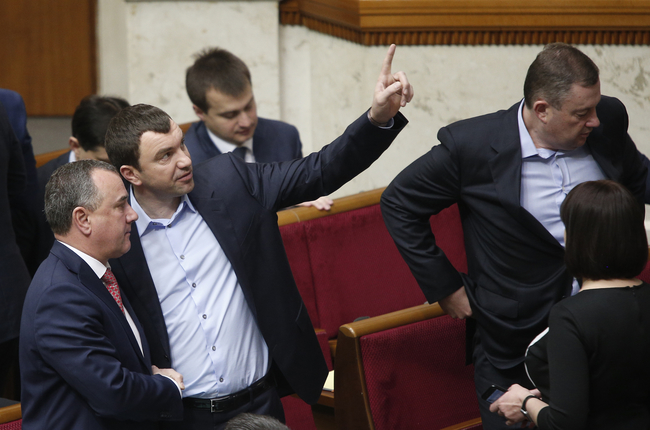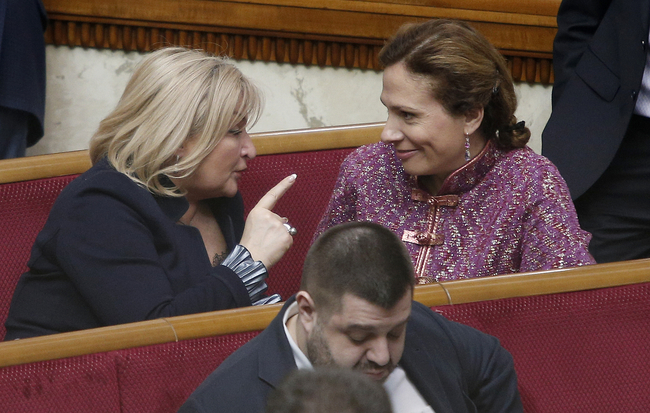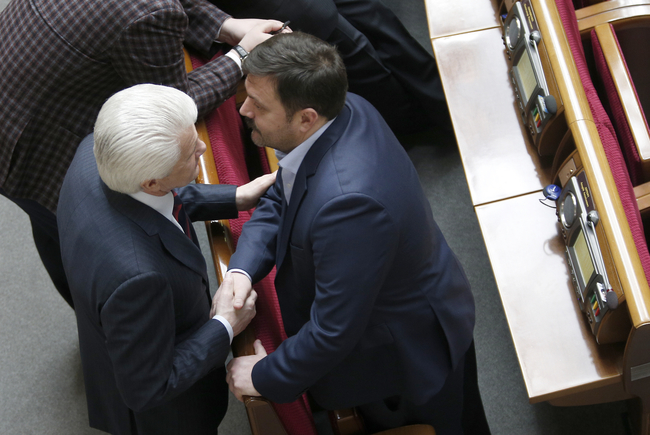An independent audit or a dependent tool?
Expert: “In our case an external assessment of the work of NABU is of no crucial importance except for a political question: whether the director of NABU will keep his job”
It looks like another scandal is brewing in Ukraine, promising a related loss of image. On Tuesday the Verkhovna Rada failed to appoint its representative to the commission for external control on independent audit of the effectiveness of the National Anti-Corruption Bureau of Ukraine. Before putting a candidate to a vote, VR speaker Andrii Parubii held a rating vote for the two nominees. Robert Storch was backed by 178 MPs, Nigel Brown by 202. Then the speaker put Brown’s appointment as the NABU auditor to a vote. However, only 200 MPs voted for him. Parubii charged the Anti-Corruption Committee to develop this issue for a further consideration by parliament.
The problem is that, according to the law on NABU, an “annual independent assessment (audit) of the efficiency” of this agency’s activities should be held. The assessment is the responsibility of an external control committee comprising three nominated members: “The President, the Verkhovna Rada, and the Cabinet of Ministers each annually nominate one commission member from persons, who have a considerable working experience in pre-trial investigation authorities, prosecution, courts of law abroad, or in international organization.” So far, the scandal concerns the parliamentary nominee. Back in the late 2016 Robert Storch, Deputy Inspector General of the US Department of Justice, won the competition held by the Verkhovna Rada Committee on Preventing and Countering Corruption. His nomination was endorsed at the Committee session.
However later, while Storch was being presented to the parliament in the session room, Ihor Hryniv, leader of the Petro Poroshenko Bloc, suddenly proposed to nominate Brown, who had not participated in the competition. The members of the president’s faction introduced him as a private detective from the UK with an impressive expertise in the field. As a result, none of the nominees was supported by parliament, and the decision was returned to the Committee. What followed was a confrontation in the Committee self, which continued in the session room.

A “BROAD COALITION” OR A “BROAD OPPOSITION”?
“We want the anti-corruption institutions, which we have been creating for three years following the Revolution of Dignity, to be professional, politically disengaged, financially independent, and monitored to a certain extent. In particular, with the help of the audit in question,” said Hanna Hopko, head of the Verkhovna Rada Committee for Foreign Affairs, in her comment to The Day. “Now, instead of the President and Prime Minister demonstrating their statesmanship and proposing their candidates, we see attempts of the presidential faction to discredit parliament. There have been violations of the procedure: an obscure candidate, Nigel Brown, appeared from nowhere, skipping all regulations and deadlines, after the closing of the official competition when an unlimited number of nominees could be proposed to the Anti-Corruption Committee. Brown comes as a rival to Robert Storch, who won the competition. Storch has 30 years of experience as prosecutor, expertise in auditing CIA, FBI, and the American office of the Interpol.”
“When we hear cliches like ‘Americans are going to rule us,’ I want to answer that we are not choosing the director of NABU: this authority is led by a Ukrainian,” continues Hopko. “All other arguments of the opponents of the American candidate are nothing but manipulation. We are choosing the best candidates capable of making a disengaged, professional external audit, the first in NABU’s history. For following audits we will search other candidates. This audit must not be a tool to pressurize NABU. When Storch’s opponents proposed Brown, they could not even say who had brought him into the session room, who had invited him to Ukraine, or who had financed his trip. The Tuesday vote showed that an attempt to bend parliament failed. We urge to return to the Committee’s ruling which was already passed on the draft decision concerning Robert Storch. We must show that parliament can efficiently ensure the functioning of anti-corruption institutions.”
What does this scandal reveal? Instead of a serious attempt to solve problems in the interests of the nation, we see another sham. Activists and a part of MPs accuse the government of trying to introduce their agent into the commission on external control in order to manipulate NABU director Artem Sytnyk, or even, through a puppet commission (having two loyalists among its members), to find Sytnyk’s activities unsatisfactory and thus create grounds for his dismissal.

THE FAMILY…
On the other hand, among total lack of trust in politicians (even in case of the so-called Euro-optimists advocating Storch’s nomination), suspicions will remain. By the way, the law does not demand that the members of the commission be foreign nationals: it can include Ukrainians as well, who have experience of working abroad. However, even if we look at the government quota, we will see that the nominees proposed by NGOs (such as Transparency International Ukraine, Reanimation Package of Reforms, and Anti-Corruption Action Center) are all foreign nationals: Martha Boersch (US), Carlos Castresana (Spain), and Giovanni Kessler (Italy). They insist that the audit must be independent, i.e. carried out by a commission member not engaged in Ukrainian politics.
“Indeed, a Ukrainian national can be nominated external auditor,” said Mykola Siryi, J.D., senior fellow at the Koretsky Institute of State and Law under the National Academy of Sciences of Ukraine, who ran for the post of NABU director along with Sytnyk. “In legal issues all respectable nations are very careful in what concerns inviting foreigners to such posts. They could be invited to consider the debate on economic or welfare issues. But what concerns jurisprudence is the sphere of domestic sovereignty. A nation that neglects this is not respected and trusted internationally. Making our legal system dependent on any foreign agents, regardless of their qualifications and decency, is not a good example.”
“Misunderstanding in this case begins from the question, whether NABU needs such an auditor at all,” emphasizes Siryi. “In American practice, for instance, they look not only at the necessity and quality of investigating criminal cases, but also the issue of the disbursement of public money for those purposes. I would like to underline that in Ukrainian practice our law-enforcement system spends as much money on investigations as it deems necessary, and this remains beyond any form of control. Then a simple question arises: what exactly is the external auditor to check? From the viewpoint of disbursement, I reiterate, this question in Ukraine is not regulated. From the viewpoint of necessity of investigating certain facts, it is not a matter of audit. It is a matter of legal assessment, on the one hand, and political, on the other.”
“I am convinced that we will need to raise the issue of the law-enforcement systems’ accountability for finances allocated for investigation, in which case audit has sense, or refuse from this institute as something absolutely unnecessary,” emphasizes Siryi. “Yet I agree that once introduced, this question needs to be solved as soon as possible. The more so that it is of no principal importance except for one political question: whether NABU director holds his job or is dismissed in case the audit yields a negative result. Thus all the complications stem exclusively from political choices and, unfortunately, the wavering in parliament are evidence of problems in this area. The political regime would like to have a reliable, convincing, legal tool to control NABU. Today it is an external auditor’s conclusion that could function as such a tool. If the auditor is not independent, it will provide an opportunity to directly pull the strings at NABU.”
Newspaper output №:
№20, (2017)Section
Topic of the Day





